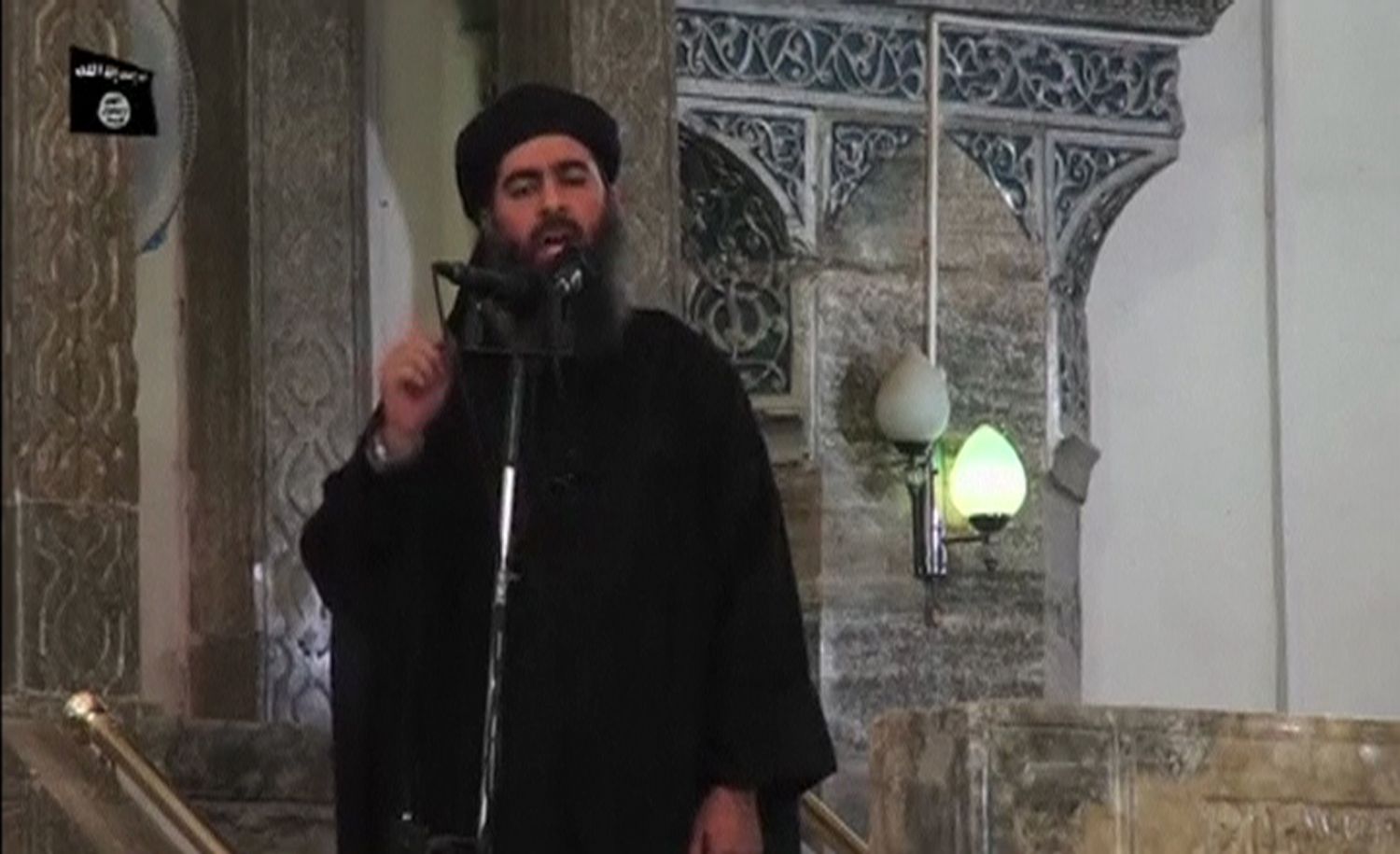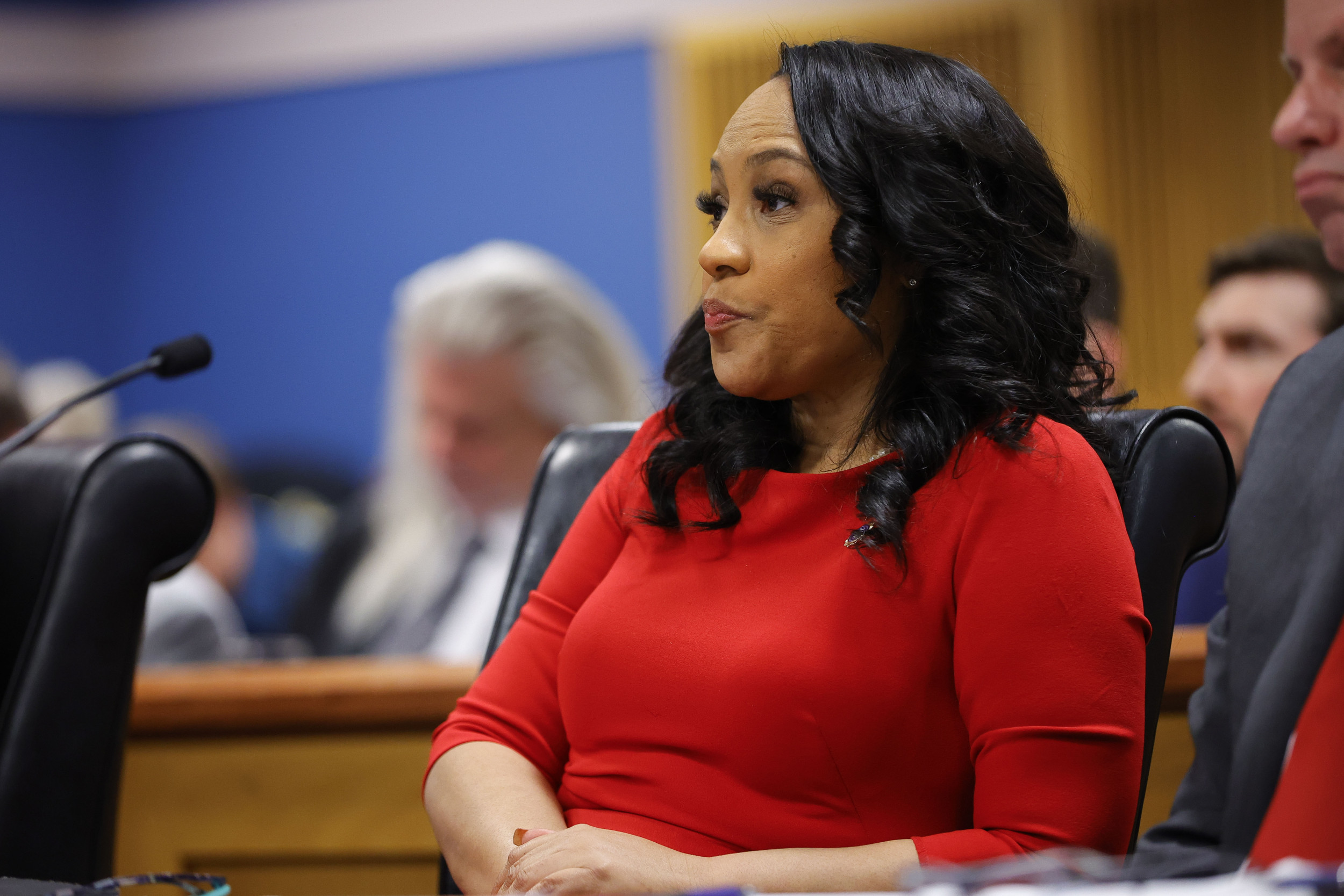
President Donald Trump is the "American twin" of the leader of the Islamic State militant group (ISIS) Abu Bakr al-Baghdadi, an Iranian general said on Wednesday, as Tehran continues to show its anger with Washington over its threat to label its elite force as an extremist organization.
Deputy Commander for Political Affairs Brigadier General Rasoul Sanayee Rad made the comparison in an opinion piece for Basirat, set up by the Islamic Republic's Iranian Revolutionary Guards (IRGC) as an Iranian and English language news site for the organization.
"Although U.S. President Donald Trump and ringleader of the ISIS terrorist group Abu Bakr al-Baghdadi are seemingly of two different races as one was born to an Arab mother in Iraq and the other to a Western mother, their ideological-behavioral features are so similar that Trump can be named al-Baghdadi's American twin," he wrote.
Rad proceeded to list four features that the two men apparently share in common, a lack of respect for sovereignty, using "ideological stigmas" to create "others," using threat and force to advance their causes, and "[following] the policies of Britain, the Israeli regime, and the Al Saud dynasty," referring to the ruling monarchy of Saudi Arabia.
The Trump administration is considering moves that may result in the U.S. designating the IRGC as a terrorist organization, U.S. officials have reported. The force is the country's elite security force, one that has significant influence in Iranian politics and its economy.
In reaction to the plan, Tehran had said that it would keep "all options on the table" to be able to react to any Trump proposal, and that it would teach the U.S. "new lessons."
Iranian officials have said that the U.S. is angry about the IRGC's effectiveness in the Middle East, where it had played a role in battling ISIS in Iraq and Syria, in parallel to the U.S.-led coalition. It is also supporting the regime of Syrian President Bashar al-Assad in the country's protracted civil war with ground troops, Shiite militias and military advisors, alongside the Russian air force and military personnel.
Rad said that Trump had accused his predecessor Barack Obama of creating ISIS, but that he was now helping the jihadi group that has wreaked chaos across the Middle East by threatening Iran on the one hand, and disrupting anti-ISIS military operations by Iraqi and Syrian armies on the other."
"This plays into the hands of al-Baghdadi," he added.
Trump has been vociferous in his condemnation of the Iranian government and its policies, from the campaign trail to the Oval Office. He has threatened to tear up the landmark nuclear deal signed between Tehran and world powers in July 2015 that lifted sanctions in return for a pulling back of Iran's uranium enrichment programme. On Friday, the White House said that Trump would soon announce a new response to Iran's "bad behaviour" in the Middle East.
It will not be aimed at one facet of Iranian policy, but many, including Iranian support for extremist groups in the Middle East, its ballistic missile tests and its online operations, Sarah Huckabee Sanders, the White House press secretary said.
"The president isn't looking at one piece of this. He's looking at all of the bad behavior of Iran," she told reporters.
"Not just the nuclear deal as bad behavior, but the ballistic missile testing, destabilizing of the region, number one state sponsor of terrorism, cyber attacks, illicit nuclear program," she continued.
But for all of Iran's comparisons of the U.S. to ISIS, or Trump to Baghdadi, Trump—like Obama—is leading the hunt for the world's most-wanted man who is believed to have spoken publicly for the first time in 11 months in September, when the group released a new audio speech by him.
The tape was released after Russia claimed to have killed the extremist leader in an airstrike near the eastern Syrian city of Raqqa in May. U.S.-led coalition and Kurdish officials cast doubt on the claim, saying they had no evidence to suggest he was dead.
In July, Trump claimed that the New York Times had foiled an attempted assassination of Baghdadi. "The Failing New York Times foiled U.S. attempt to kill the single most wanted terrorist, Al-Baghdadi," he wrote. "Their sick agenda over National Security."
The Times, in its reaction to the president's claim, deduced that the subject of the president and news channel's finger-pointing was an Eric Schmitt article published on June 8, 2015. The report recounted new information about a special forces raid that killed Abu Sayyaf, a top ISIS commander and the group's oil chief. In that raid, two dozen Delta Force commandos flew military helicopters and aircraft into Syria from Iraq to launch the operation.
Uncommon Knowledge
Newsweek is committed to challenging conventional wisdom and finding connections in the search for common ground.
Newsweek is committed to challenging conventional wisdom and finding connections in the search for common ground.
About the writer
Jack is International Security and Terrorism Correspondent for Newsweek.
Email: j.moore@newsweek.com
Encrypted email: jfxm@protonmail.com
Available on Whatsapp, Signal, Wickr, Telegram, Viber.
Twitter: @JFXM
Instagram: Read more
To read how Newsweek uses AI as a newsroom tool, Click here.





